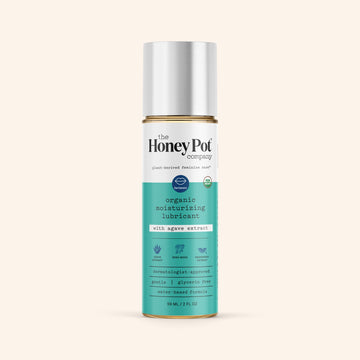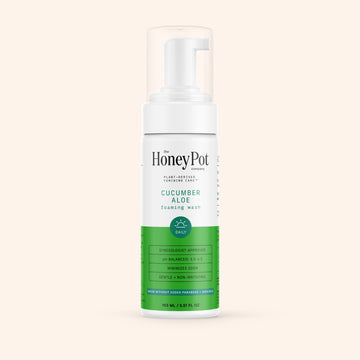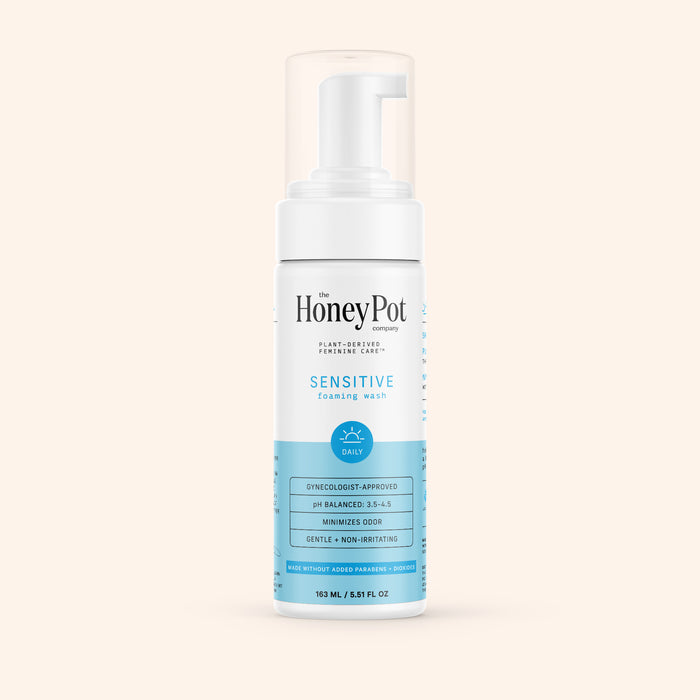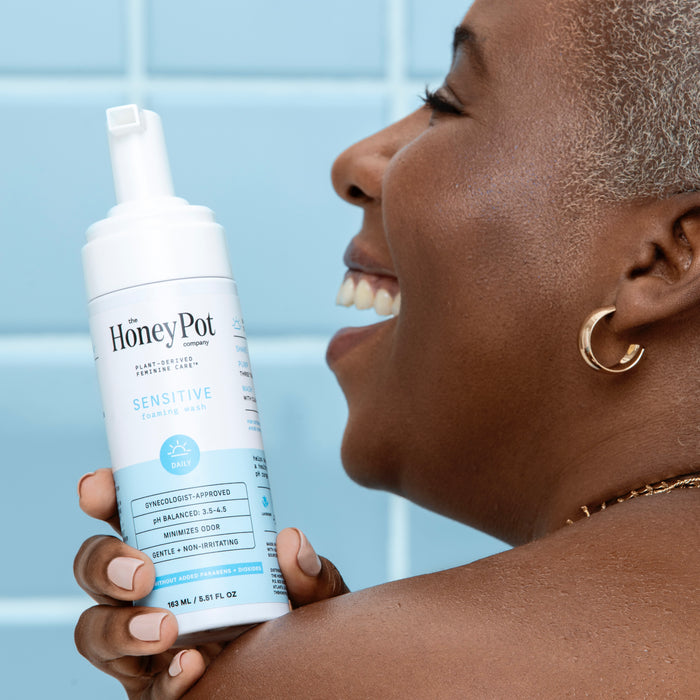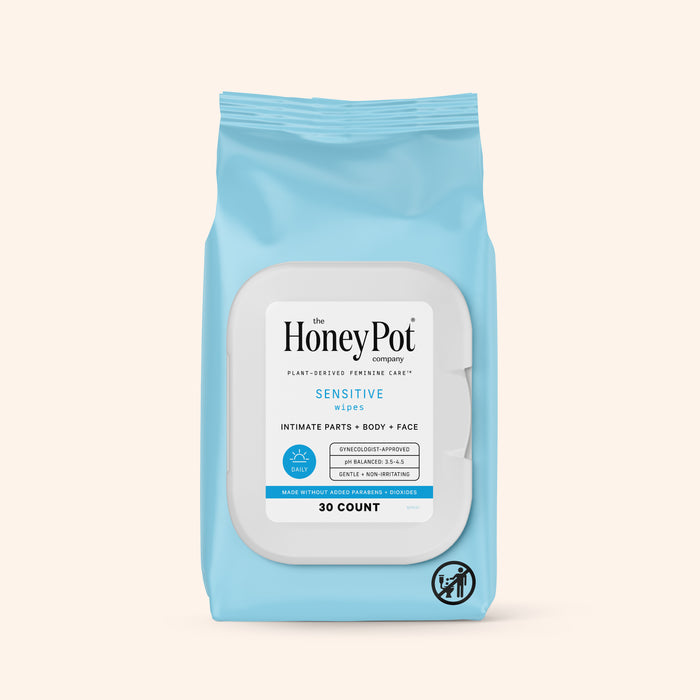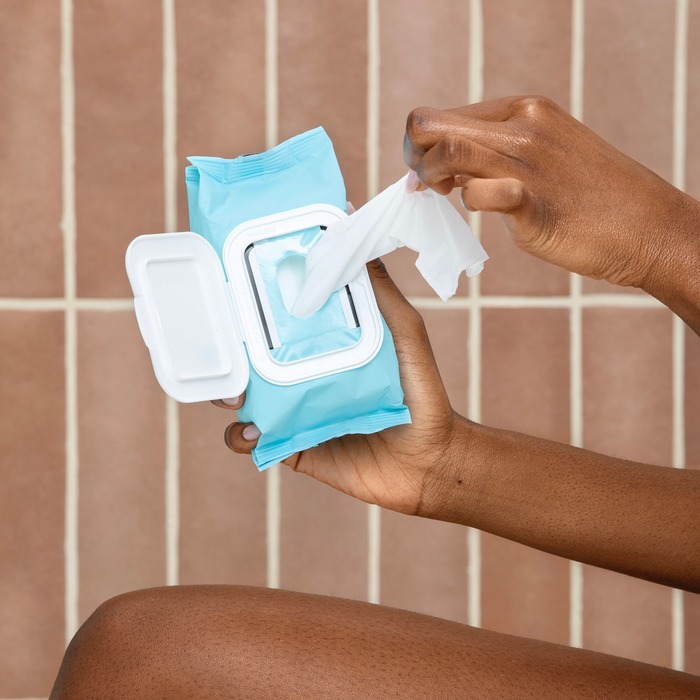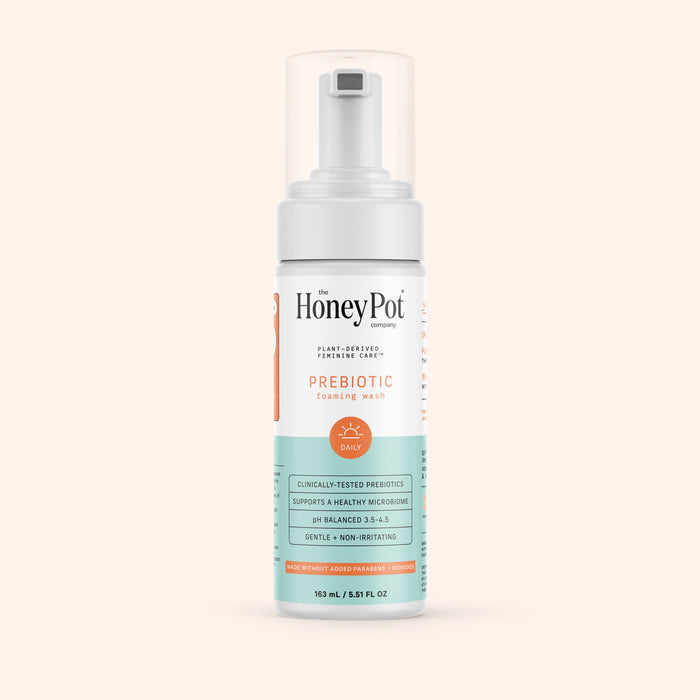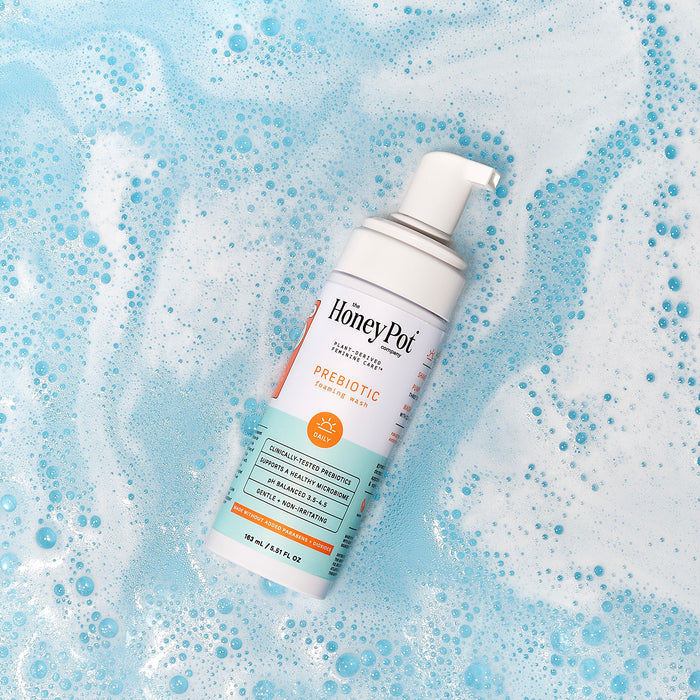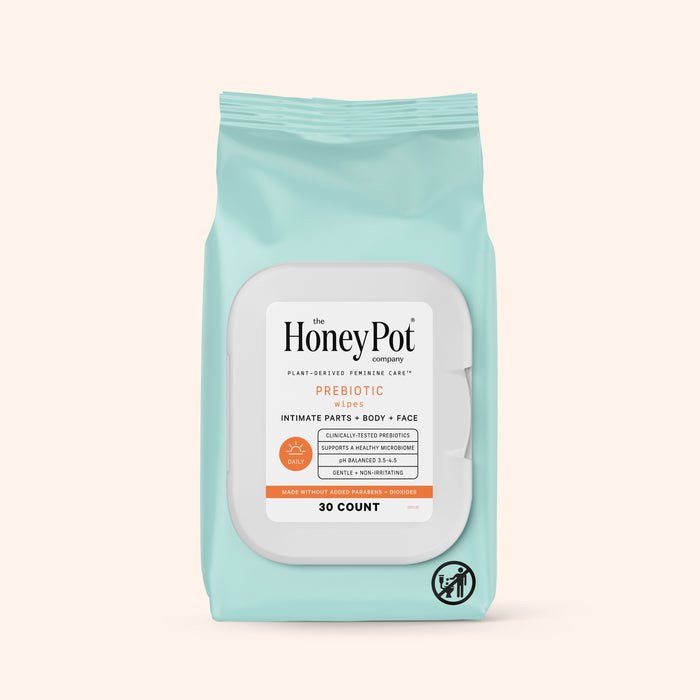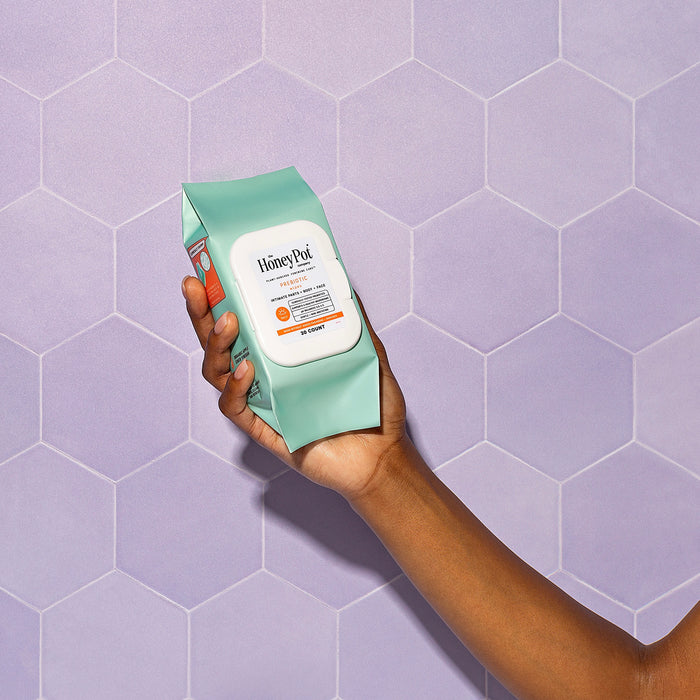ACCOUNT
(0)
Looking pretty empty in here
at the moment.
We recommend:
BROWSE ALL PRODUCTS

Wellness
Decoding Your Feminine Health: A Guide to Personalized Hygiene
By: Sarah Jividen, RN, BSN
Feminine hygiene is a personal and essential aspect of overall health. With so many products and practices available, it can be overwhelming to determine what's best for your body. Understanding how to care for your vaginal and intimate health involves knowing what products to use, how lifestyle impacts your well-being, and when changes to your hygiene routine are needed. This guide will help you navigate the essentials of feminine hygiene, empowering you to make informed choices that suit your body's unique needs.
Understanding Vaginal pH and Its Role in Feminine Hygiene
The vaginal microbiota consists of bacteria, fungi, and other microorganisms that naturally reside in the vagina, with Lactobacilli being the dominant beneficial bacteria. This bacterium helps maintain a slightly acidic pH (between 3.8 and 4.5), which plays a crucial role in preventing the overgrowth of harmful bacteria and fungi.
When this balance is disrupted, often due to harsh products, lifestyle choices, or health issues, it can lead to discomfort and infections like bacterial vaginosis (BV) or yeast infections. Maintaining a healthy vaginal microbiota is essential for overall vaginal health, as it relies on this balanced, acidic environment to keep harmful microorganisms in check.
How to Maintain a Healthy Vaginal pH
Maintaining a healthy vaginal pH is essential for preventing infections and discomfort, and it starts with simple daily habits that support your body's natural balance. You should:
- Avoid douching, as it can disturb natural bacterial balance.
- Use pH-balanced soaps and washes that are specifically designed for intimate areas.
- Wear breathable cotton underwear to prevent moisture buildup.
- Stay hydrated and consume probiotic-rich foods to support vaginal flora.
- Change menstrual products regularly to avoid bacterial overgrowth.
Choosing the Right Feminine Hygiene Products
Not all hygiene products are created equal. While some may claim to be “natural,” it’s important to read labels carefully, as even seemingly gentle products can disrupt your pH balance. Choose products that are designed specifically for intimate use, pH-balanced, fragrance-free, and made with gentle ingredients. You’ll also want to avoid douching, as it can disturb the vaginal microbiota.
Best Practices When Selecting Feminine Hygiene Products
Choosing the right feminine hygiene products is key to maintaining comfort, health, and balance, but with so many options available, it’s important to know what to look for.
- Cleansers: Choose unscented, pH-balanced washes. Avoid products with harsh chemicals or fragrances that can cause irritation.
- Wipes: Choose fragrance-free, hypoallergenic wipes if you need on-the-go freshness.
- Menstrual Products: Consider organic cotton tampons, pads, or menstrual cups to reduce exposure to harmful chemicals.
- Lubricants: Water-based, pH-friendly lubricants can prevent dryness and irritation during intercourse.
How Lifestyle Choices Impact Vaginal Health
It’s important to remember that your vaginal microbiota is deeply influenced by your lifestyle, including your diet, exercise routine, hygiene habits, and even sexual activity. Here’s how each of these factors can impact the health of your microbiota:
Clothing: Tight, nonbreathable fabrics can trap moisture and create an environment for bacteria to thrive. Opting for breathable cotton underwear and choosing looser clothing when possible can help maintain a healthy balance.
Diet: What you eat affects your body’s overall health, including your vaginal microbiota. Probiotic-rich foods like yogurt, kefir, and fermented vegetables are known to support healthy bacteria. Hydration is also key — drinking plenty of water helps flush toxins from your body and keep things running smoothly.
Exercise: While exercise is essential for overall health, certain activities — like hot yoga or long runs — can increase perspiration, potentially leading to moisture buildup and irritation. After a sweaty workout, change out of your clothes quickly, stay hydrated, and opt for cotton underwear to promote a healthier vaginal environment.
Sexual Health: Safe sex practices are key for maintaining vaginal health. Using protection and keeping the external genital area clean after intercourse are essential. Be mindful of any new symptoms like irritation or unusual discharge, which could be signs of infection.
Personal Hygiene: Over-washing with harsh soaps or douching can strip away the protective layer of beneficial bacteria, disturbing the natural balance of your microbiota. It’s best to use gentle, unscented products that are designed for intimate care and avoid washing the internal vaginal area.
When to See a Healthcare Provider
Regular gynecological visits are essential for maintaining vaginal health. While some symptoms can be managed with lifestyle changes, others require professional evaluation. Signs that may warrant a doctor’s visit include:
- Persistent itching, burning, or irritation
- Unusual or foul-smelling discharge
- Irregular periods or severe menstrual pain
- Pain during intercourse
Caring for Your Vaginal Health: A Holistic Approach
When it comes to feminine health, there’s no quick fix or magic product. Your vaginal health is influenced by multiple aspects of your life, including diet, hygiene practices, sexual health, and clothing choices. It’s about taking a holistic approach — paying attention to how your body feels, using products that align with your needs, and making choices that support your overall health.
For example, if you love hot yoga, you might need to take extra steps to stay hydrated and refresh between classes. Opting for breathable workout clothing and packing a change of clothes can help minimize moisture buildup, while a pH-balanced wipe can keep you feeling fresh without disrupting your natural balance.
The key takeaway? It’s about finding what works for you. Your feminine hygiene routine should reflect your lifestyle and unique needs. When in doubt, talk to your healthcare provider, do your research, and be mindful of how different products and habits affect your body. By embracing the right practices and using products that support your natural balance, you’re giving your vaginal microbiota the care it deserves.
Featured Products
Education Center
Understanding your body starts with knowledge—explore the facts about vagina wellness today.
Wellness
5 Signs Your Vaginal pH Might Be Off Balance — and What to Do About It
Wellness
Decoding Your Feminine Health: A Guide to Personalized Hygiene
Wellness
Understanding Hormones, Part 1
Wellness
Understanding Hormones, Part 2





